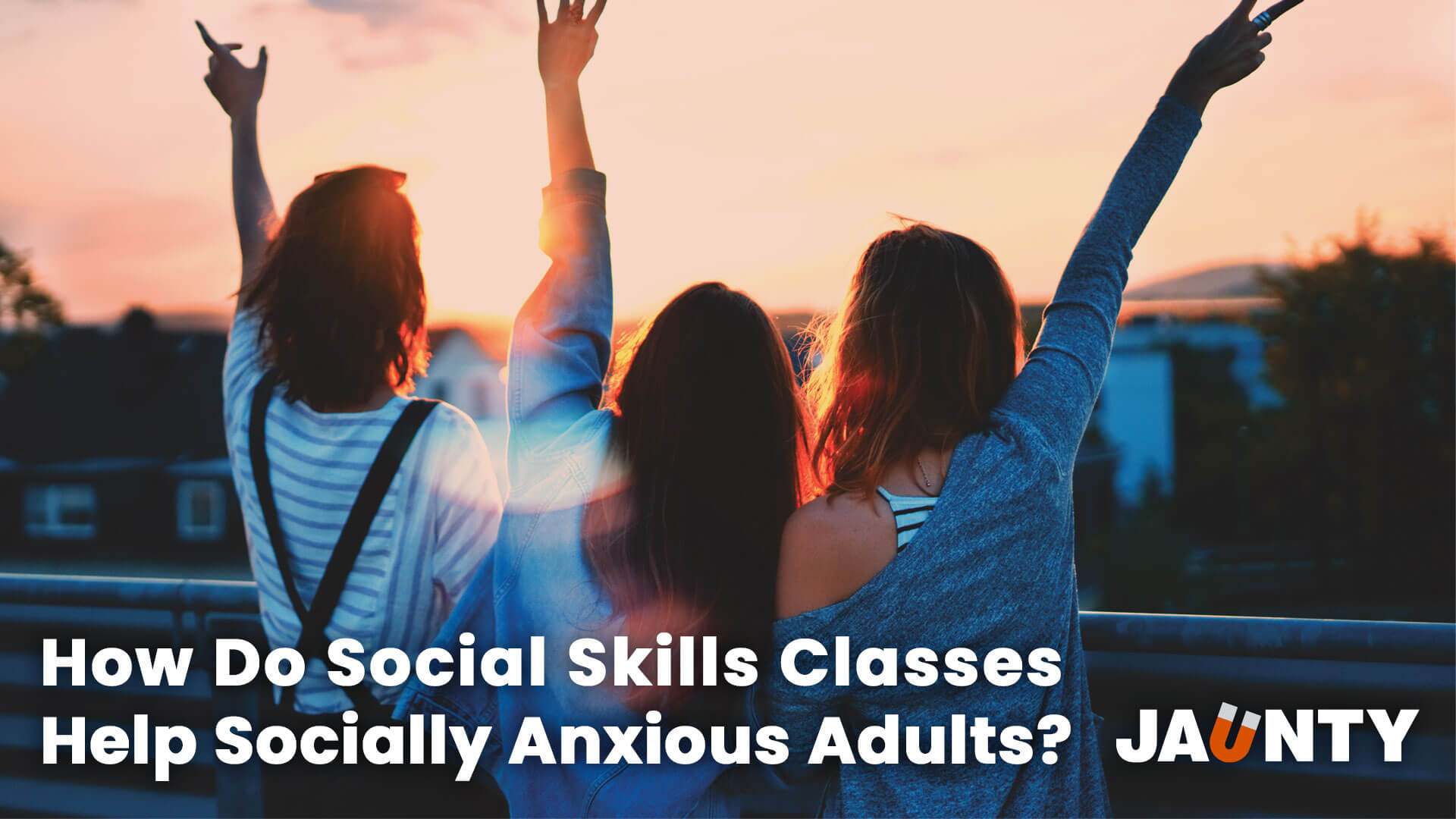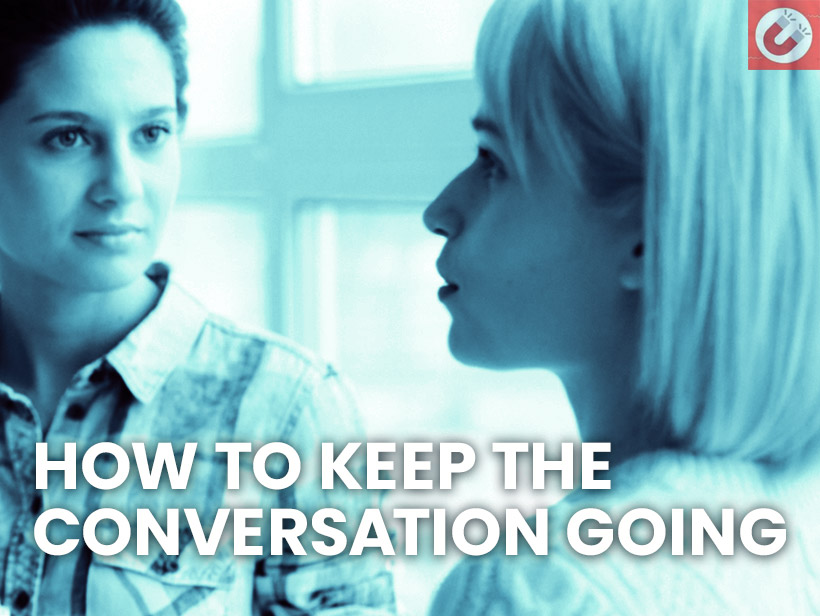Ever felt totally lost during social situations? You’re not alone. Many adults struggle with social skills, which can lead to feelings of isolation and social anxiety.
But here’s the good news! It’s never too late to improve your social skills.
And studies have shown, social skills classes help adults overcome social anxiety and improve their interactions with others.
Some of the benefits of social skills classes include improved communication, enhanced emotional intelligence, and the ability to build stronger relationships.
Keep reading if you’re on the fence about the power of Social Skills Classes. By the end of this article, you’ll know exactly what these classes can offer and how they can help you reach your social potential.
What Are Social Skills Classes For Adults?
Social skills, often referred to as interpersonal skills, are the abilities we use to communicate and interact with others. While some people develop social skills over time through social interactions, experiences, and usually lots of trial and error, some adults may find that they struggle in social situations due to various reasons. This is where social skills classes come into play.
Social Skills Classes for Adults: An Overview
- Objective:
- The primary goal of these classes is to help adults improve their interpersonal skills, making it easier for them to form and maintain relationships, both personally and professionally.
- The primary goal of these classes is to help adults improve their interpersonal skills, making it easier for them to form and maintain relationships, both personally and professionally.
- Topics Covered:
- Basic Communication Skills: This includes active listening, maintaining eye contact, and understanding non-verbal cues.
- Conversation Skills: Starting, maintaining, and ending conversations gracefully.
- Assertiveness Training: Learning to express oneself confidently without being aggressive.
- Conflict Resolution: Techniques to handle disagreements and conflicts in a constructive manner.
- Empathy and Understanding: Recognizing and understanding the emotions of others.
- Networking Skills: Building and maintaining professional relationships.
- Public Speaking: Overcoming the fear of speaking in front of groups and effectively conveying ideas.
- Methods of Teaching:
- Role-playing: Participants act out various scenarios to practice and refine their skills.
- Group Discussions: Sharing experiences and learning from others.
- Feedback Sessions: Receiving constructive feedback from instructors and peers.
- Multimedia Presentations: Using videos and other media to illustrate effective social interactions.
- Homework Assignments: Practical tasks to practice skills in real-life situations.
- Who Can Benefit:
- Individuals with Social Anxiety: Those who feel nervous or uncomfortable in social situations.
- Professionals: Especially those in roles that require a lot of networking or public speaking.
- People with Autism Spectrum Disorders: Some adults on the spectrum may benefit from structured social skills training.
- Anyone Looking to Improve: Even if you’re generally comfortable in social situations, there’s always room for improvement.
- Duration and Format:
- These classes can vary in length, from one-day workshops to multi-week courses. They might be offered in-person, online, or in a hybrid format.
- These classes can vary in length, from one-day workshops to multi-week courses. They might be offered in-person, online, or in a hybrid format.
Social skills classes can provide a structured environment where adults can learn and practice essential interpersonal skills. Whether you’re looking to overcome specific challenges or simply want to polish your social skills, these classes offer valuable insights and techniques.
How Do Social Skills Classes Help Socially Anxious Adults?
These classes can be particularly beneficial for individuals dealing with social anxiety, as they provide a safe and supportive environment to practice and improve social skills. They can also be helpful for adults with mental health conditions, as they often include strategies for managing social situations that can be challenging.
Here’s a real life example of how our Social Skills Masterclass helped one of our Jaunty students.
“I’ve always suffered from social anxiety for as long as I can remember. During my childhood, any form of social interaction–from answering the telephone, to ordering a hamburger at McDonald’s, to even speaking to my own family and friends–would make me feel anxious and tremble with fear. I was labeled as anti-social, passive, shy, and introverted, and because of that, I grew up with a lot of fear, shame, and guilt.”
“There’s nothing more powerful and inspiring than being surrounded by amazing people who are all in the same boat as you are. The inspiration and support from my classmates truly inspired me to trust the methods taught by Jaunty, to push myself to apply the things that I learned, and to ultimately hold myself accountable for my own personal growth.”
– A successful Jaunty student explaining the benefits of Social Skills Classes For Adults
From complete personal transformations to overcoming fear of everyday interactions, we’ve seen it all, and the benefits are clear.
Next, we’ll outline some of the top reasons adults should consider social skills classes.
Improved Communication Skills
One of the most significant benefits of social skills classes for adults is the enhancement of communication skills. In our daily lives, we constantly interact with others, and the quality of these interactions can greatly impact our personal and professional success. Effective communication involves more than just speaking clearly; it also includes listening actively, understanding non-verbal cues, and being able to express thoughts and feelings assertively. Social skills classes provide training in these areas, helping individuals to become more effective communicators.
1. Verbal Communication
Verbal communication is a fundamental social skill that involves expressing thoughts, ideas, and feelings through spoken language. Social skills classes often provide training in how to express oneself clearly and effectively, which can enhance both personal and professional interactions.
2. Non-Verbal Communication
Non-verbal communication, such as body language, facial expressions, and tone of voice, plays a crucial role in how we interact with others. Social skills classes often include training in non-verbal communication, helping individuals to understand and use these subtle cues effectively. This can enhance overall communication and lead to more successful social interactions.
3. Active Listening Skills
Active listening is a crucial social skill that is often emphasized in social skills classes. It involves fully focusing on the speaker, understanding their message, responding thoughtfully, and withholding judgment. This skill can improve all types of communication, leading to more effective and meaningful conversations.
4. Social Cues and Norms
Social cues, both verbal and non-verbal, are a crucial part of social interaction. Social skills classes can help individuals become more adept at interpreting these cues and responding appropriately, leading to more effective and meaningful interactions.
5. Giving and Receiving Feedback
Another important aspect of social skills classes is learning how to give and receive feedback effectively. Constructive feedback can be a powerful tool for personal and professional development, but it requires skill to deliver and receive it in a way that fosters improvement rather than causing offense. By mastering these skills, individuals can contribute more effectively to team efforts and personal relationships.
Enhanced Emotional Intelligence
Emotional intelligence is a key component of successful social interactions. It involves understanding and managing one’s own emotions, as well as being able to empathize with and respond appropriately to the emotions of others. Social skills classes for adults often include training in emotional intelligence, helping individuals to navigate social situations more effectively and build stronger, more meaningful relationships.
6. Increased Empathy
Empathy, the ability to understand and share the feelings of others, is a key aspect of emotional intelligence. Social skills classes often emphasize the development of empathy, teaching individuals how to respond compassionately and appropriately to the emotions of others. This can lead to more positive and fulfilling social interactions.
7. Managing Personal Emotions
Understanding and managing one’s own emotions is another important aspect of emotional intelligence. Social skills classes often provide strategies for recognizing and controlling emotional responses, particularly in challenging or stressful situations. This can lead to more effective communication, better conflict resolution, and improved overall mental well-being.
8. Handling Social Anxiety and Stress
Social situations can sometimes be stressful, particularly for those with social anxiety or other related conditions. Social skills classes can provide strategies for managing this stress, such as relaxation techniques and cognitive-behavioral strategies. Over time, this can lead to a greater ability to handle stress and anxiety in social situations.
9. Expressing Yourself
Being able to express one’s thoughts and feelings effectively is a crucial aspect of emotional intelligence. Social skills classes often provide training in how to express oneself in a clear, assertive, and respectful manner. This can enhance communication, improve self-confidence, and lead to more satisfying social interactions.
Relationship Building
Building and maintaining healthy relationships is a key aspect of social interaction. Whether it’s forming new friendships, maintaining family relationships, or building professional networks, effective social skills play a crucial role. Social skills classes for adults provide training in these areas, equipping individuals with the tools they need to form and maintain strong, positive relationships.
10. Approachability
Being approachable is a key aspect of building relationships. It involves presenting oneself in a way that makes others feel comfortable and willing to engage in conversation. Social skills classes often provide guidance on how to appear more approachable, such as maintaining open body language, making eye contact, and showing genuine interest in others.
11. Building Rapport
Rapport is a sense of harmony, understanding, and mutual trust that can develop in a relationship. Building rapport involves finding common ground, showing empathy, and maintaining a positive attitude. Social skills classes often provide strategies for building rapport, which can lead to stronger and more fulfilling relationships.
12. Conflict Resolution
Conflict is a natural part of any relationship. The ability to resolve conflicts in a constructive manner is a crucial social skill. Social skills classes often provide training in conflict resolution strategies, such as active listening, expressing oneself clearly and respectfully, and finding win-win solutions.
13. Personal Boundaries
Understanding and respecting personal boundaries is a key aspect of healthy social interaction. Social skills classes can provide guidance on how to establish and respect personal boundaries, leading to more respectful and comfortable interactions, healthy relationships, and can help with achieving work-life balance.
14. Handling Difficult People
Dealing with difficult people can be a challenge, but social skills classes often provide strategies to handle such situations. This can involve understanding different personality types, managing one’s own reactions, and using effective communication strategies to defuse tension. These skills can be invaluable in maintaining harmony in both personal and professional relationships.
Personal Development
Personal development is a lifelong process of self-improvement and self-discovery. Social skills classes for adults can play a key role in this process, helping individuals to develop greater self-awareness, boost their self-confidence, and learn to handle criticism constructively. These skills can lead to personal growth, improved mental well-being, and a greater sense of fulfillment in social interactions.
15. Self-confidence
Self-confidence is a key aspect of social interaction. It involves believing in one’s abilities and presenting oneself in a positive and assertive manner. Social skills classes often provide strategies for boosting self-confidence, such as setting and achieving personal goals, overcoming fears, and developing a positive self-image.
16. Self-awareness
Self-awareness involves understanding one’s own thoughts, feelings, and behaviors. It’s a key aspect of personal development and can lead to greater emotional intelligence, improved decision-making, and better interpersonal relationships. Social skills classes often include exercises designed to enhance self-awareness, such as self-reflection activities and feedback sessions.
17. Handling Criticism
Handling criticism can be challenging, but it’s a valuable skill that can be developed through social skills classes. This can involve learning how to accept constructive criticism, respond to negative criticism in a healthy way, and use criticism as a tool for personal growth.
18. Assertiveness
Assertiveness is the ability to express one’s thoughts and feelings in a confident yet respectful manner. It’s a key aspect of effective communication and can help individuals to stand up for themselves, learn to say no, express their needs clearly, and maintain healthy boundaries in their relationships. Social skills classes often provide training in assertiveness, helping individuals to communicate more effectively and confidently.
19. Advocacy for Oneself
Self-advocacy involves standing up for one’s own rights and needs in a respectful and assertive manner. It’s a crucial skill in both personal and professional settings. Social skills classes often provide training in self-advocacy, equipping individuals with the skills and confidence they need to advocate for themselves effectively.
Leadership & Teamwork Skills
Leadership and teamwork skills are highly valued in many professional settings, and they can also be beneficial in personal and community contexts. Social skills classes for adults often include elements of leadership and teamwork training, helping individuals to develop skills such as decision-making, problem-solving, and influencing others.
20. Leadership Training
Leadership involves guiding, inspiring, and influencing others to achieve a common goal. It requires a range of social skills, including effective communication, conflict resolution, and empathy. Social skills classes often include elements of leadership training, helping individuals to develop these skills and apply them in both personal and professional settings.
21. Teamwork and Cooperation
Teamwork involves working collaboratively with others to achieve a common goal. It requires skills such as effective communication, conflict resolution, and compromise. Social skills classes often include exercises and activities that promote teamwork and cooperation, helping individuals to work more effectively in team settings.
22. Negotiation Skills
Negotiation is a process of finding a mutually acceptable solution to a conflict or disagreement. It involves skills such as effective communication, problem-solving, and understanding others’ perspectives. Social skills classes often provide training in negotiation, helping individuals to resolve conflicts in a constructive and mutually beneficial manner.
23. Ability to Influence Others
Influencing others involves persuading or inspiring them to think or act in a certain way. It’s a key aspect of leadership and can also be beneficial in many other social interactions. Social skills classes often provide strategies for influencing others in a positive and respectful manner, such as building rapport, expressing ideas clearly, and demonstrating empathy.
Mental Health & Well-being
Mental health and well-being are closely linked to social skills. Effective social interactions can boost mood, reduce feelings of loneliness, and contribute to overall mental well-being. Social skills classes for adults can provide strategies for improving social interactions, managing social anxiety, and developing a more positive outlook on life.
24. Improved Mental Health
Improving social skills can have a positive impact on mental health. Struggles with social interaction can lead to feelings of isolation, anxiety, and low self-esteem. By developing stronger social skills, individuals can experience more positive social interactions, which can boost mood, reduce feelings of loneliness, and contribute to overall mental well-being.
25. Satisfaction in Social Interactions
One of the key benefits of social skills classes is the potential for greater satisfaction in social interactions. As individuals improve their social skills, they are likely to find social situations more enjoyable and fulfilling, leading to an overall increase in social satisfaction and quality of life.
26. Positive Attitudes
Developing a positive attitude is a key aspect of mental health and well-being. Social skills classes often foster the development of positive attitudes, helping individuals to view social interactions in a more positive light. This can lead to more enjoyable and fulfilling social experiences.
27. Expressing Appreciation and Gratitude
Expressing appreciation and gratitude is a key aspect of positive social interaction. Social skills classes can provide guidance on how to express these feelings effectively, leading to more positive relationships and a greater sense of personal fulfillment.
Career Advancement
Strong social skills are highly valued in the workplace and can significantly enhance career prospects. From acing job interviews to building positive relationships with colleagues and superiors, social skills play a key role in professional success. Social skills classes for adults can provide the tools needed to navigate the professional world with confidence and poise, improving networking skills, public speaking skills, and problem-solving capabilities.
28. Networking Skills
Networking involves building and maintaining professional relationships that can lead to career opportunities. It requires skills such as initiating and maintaining conversations, building rapport, and presenting oneself professionally. Social skills classes often include training on effective networking strategies, helping individuals to build strong professional networks and open up new career opportunities.
29. Enhanced Career Prospects
Strong social skills can significantly enhance career prospects. They can help individuals to perform well in job interviews, build positive relationships with colleagues and superiors, and navigate the complexities of the workplace. Social skills classes can provide the training needed to develop these skills, leading to improved job performance and career advancement.
30. Public Speaking Skills
Public speaking involves presenting information to a group in a clear, engaging, and confident manner. It’s a key skill in many professional settings, from giving presentations to participating in meetings. Social skills classes often include components of public speaking, helping individuals to become more comfortable and effective at speaking in front of groups.
31. Problem-Solving Skills
Problem-solving involves identifying and overcoming challenges in a constructive and effective manner. It’s a key skill in the workplace, where individuals often need to find solutions to complex problems. Social skills classes often involve problem-solving exercises that require participants to think critically and collaboratively, helping them to develop this important skill.
Social Skills Classes Are A Game Changer For Adults
We’ve explored the multifaceted benefits of social skills classes for adults. From enhancing communication skills and emotional intelligence to fostering relationship building and personal development, these classes offer a comprehensive approach to improving social interactions. They also provide valuable tools for leadership and teamwork, contribute to mental health and well-being, and can even boost career prospects.
Key Takeaways
- Verbal and non-verbal communication skills can be honed, leading to more effective and meaningful interactions.
- Emotional intelligence, including empathy and managing personal emotions, can be enhanced.
- Relationship building skills, such as approachability and conflict resolution, can be developed.
- Personal development, including self-confidence and self-awareness, can be fostered.
- Leadership and teamwork skills can be cultivated, enhancing professional prospects.
- Mental health and well-being can be improved through better social interactions.
With the right guidance and practice, you can transform your social interactions, leading to more fulfilling relationships, improved professional prospects, and a greater sense of personal well-being.
Unlock Your Social Potential with Jaunty
With the help of social skills classes, you can enhance your interactions, build stronger relationships, and navigate social situations with confidence. But where can you find these classes? Look no further than Jaunty.
Jaunty is a platform dedicated to helping individuals improve their social skills and overcome challenges like social anxiety. Our team of experienced social coaches brings together insights from a range of fields, including philosophy, psychology, neuroscience, and behavioral sciences, to provide you with actionable tips and strategies. Whether you’re looking to make new friends, improve your conversation skills, or become more assertive, Jaunty is here to guide you.
Working with a social skills coach can provide personalized guidance and support, helping you to apply the principles you learn in a way that suits your unique needs and circumstances.
A Social Skills Coach can help you:
- Develop effective verbal and non-verbal communication skills.
- Enhance emotional intelligence, including empathy and managing personal emotions.
- Foster personal development, including self-confidence and self-awareness.
- Improve your mental health and well-being through better social interactions.
- Improve networking, leadership, and teamwork skills.
- Build and maintain healthier relationships.
Don’t let social anxiety or a lack of social skills hold you back from forming meaningful relationships and achieving your personal and professional goals. Take the first step towards improving your social skills by exploring the wealth of resources available at Jaunty. Your journey towards better social interactions starts here.



